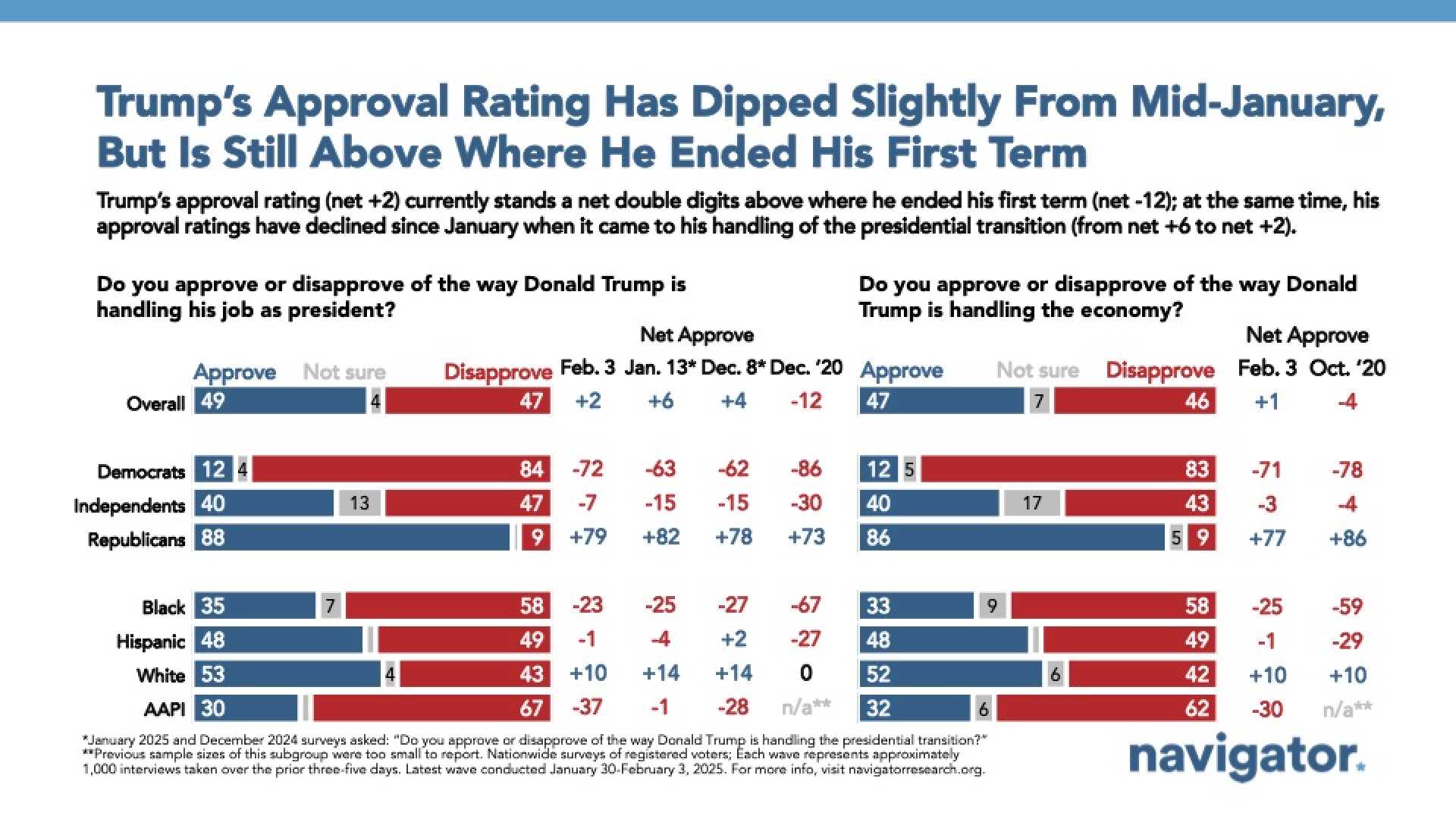Politics
Trump’s Approval Rating Hits Lowest Point Amid Tariff Concerns

WASHINGTON, April 2 (Reuters) – President Donald Trump’s approval rating has dropped to 43%, marking the lowest level since he returned to office, according to a recent poll conducted by Reuters/Ipsos. The decline follows widespread discontent over his recent tariff proposals and his administration’s handling of information related to a military strike in Yemen.
The three-day poll, which concluded on Wednesday, revealed that Trump’s approval fell by 2 percentage points since the last survey conducted from March 21 to 23. This rating is also a notable 4 points below the 47% approval early in his second term that began on January 20.
Historically, Trump reached a peak approval rating of 49% shortly after his inauguration in January 2017, with his lowest at 33% in December 2017. His current approval is still higher than many points during his first term.
For reference, former President Joe Biden reached his lowest approval of 35% shortly before the November 2022 elections. In the latest poll, respondents expressed particularly negative views on Trump’s economic management, with only 37% approving of his handling of the economy and just 30% satisfied with his efforts to address rising living costs—an issue that also plagued Biden.
As for Trump’s recent tariff proposals on automobiles and auto parts, nearly 52% of those surveyed expressed concern that these would negatively affect individuals in their communities. Furthermore, a similar portion, around 50%, indicated they believed that these tariff increases would overall do more harm than good.
Trump’s tariffs have drawn criticism from various sectors, with several analysts warning they may spark recession by unsettling investors and leading to significant sell-offs in the stock market. The immediate aftermath of Trump’s proposals saw losses for auto stocks, with General Motors plummeting over 7% and Ford declining nearly 4%.
Following the recent disclosure regarding the administration’s dealings with military plans, 74% of respondents deemed discussions around the military strike in Yemen as reckless, highlighting an alarming lack of confidence in Trump’s foreign policy efforts. Only 34% approved of his management of international relations, a decrease from 37% in the previous poll.
According to the poll’s data set, which surveyed 1,486 U.S. adults and has a margin of error of approximately 3 percentage points, there remains a divide among party lines. While 91% of Democrats viewed the military discussions negatively, 55% of Republicans shared similar sentiments.
This decline in approval comes at a challenging time for Trump, as he manages a host of policies aimed at reshaping U.S. economic policy, including tariffs targeting key allies. The implications of these policies continue to unfold in both public sentiment and financial markets.












